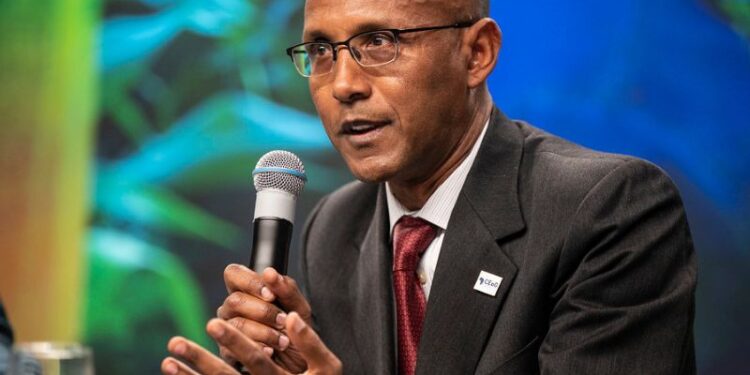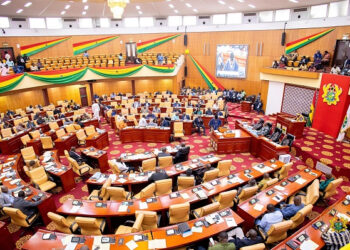The World Bank’s Chief Economist for Africa, Andrew Dabalen, says current events suggest the transition towards a multipolar monetary system that takes into account the diffusion of global economic forces over the last several decades will be fraught.
He says growth across Sub-Saharan Africa remains sluggish, dragged down by uncertainty in the global economy, the underperformance of the continent’s largest economies, high inflation, and a sharp deceleration of investment growth.
“The world is shifting to a transition where that energy is going to come from wind turbines, solar panels, lithium batteries, hydro, among others. So, the idea is to leave behind burning carbon. But we think about this as just an energy issue, but it is actually going to lead to massive technological transformations in the world.”
Speaking about harnessing natural resources for a sustainable future at the spring meetings in Washington DC, Andrew Dabalen said in the face of dampened growth prospects and rising debt levels, African governments must sharpen their focus on macroeconomic stability, domestic revenue mobilization, debt reduction, and productive investments.
This he says this will reduce extreme poverty and boost shared prosperity in the medium to long term.
According to him, the cloud of economic downturn over Africa will ease in the near term, but the bright spots are for governments to maximize the benefits of mineral resources that are carbon efficient, including lithium cobalt, and copper, to pop up growth, create jobs in the value chain and reduce poverty.
“This is an opportunity for Africa because a lot of these technologies require minerals that Africans have like cobalt, manganese, copper, coal train and it’s really important for African countries to maximize the benefits to get this through,” he said.
He is therefore upbeat that domestic reform by Africa has the potential of raking in revenues to address fiscal issues and transform economies on the continent.
He says Africans “can generate revenues from it that will stabilize their fiscal issues. They can use this to transform economies, create value, and create jobs. They can coordinate with each other. We see it coming but it’s not something that African countries can just sit back and be on the sidelines. This is something they must participate in because it’s really crucial.”
Source: Anthony Sasu Ayisadu/ATLFMNEWS



























